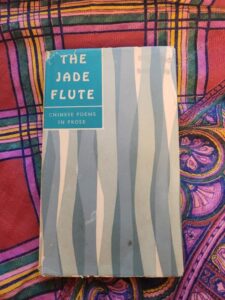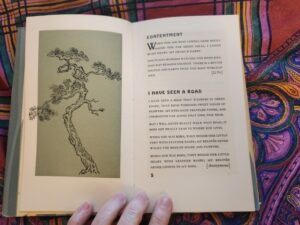One of the hazards of researching for a novel — at least for me — is that the subject I’m researching can, under certain conditions, become an obsession.
The story behind this particular obsession is complicated. I don’t know why my father, a criminal and a conman, would hang out at a Chinese curio ship in the Southern California town where I grew up. There could have been innocent reasons, although I kind of doubt it. He was, after all, a criminal and a conman. Some few times he took my brother and I with him to the shop, and we were strictly enjoined to explore elsewhere, away from the conversation he was having with the proprietor, which we were not under any circumstances to interrupt.
I was perhaps 7 or 8 years old, but I still remember the smell of the place — polished wood and Chinese medicines in little paper bags and small brown bottles. The shelves in the rest of the place were full of carved ivory figures and jade jewelry and inlaid boxes and, sometimes, cheap paper curiosities that my father could afford to buy for us. It ignited my fascination with the country and the culture that produced such wonders.
A few years later, a student teacher was assigned to my sixth grade class, and she had charge of three of us, nominally the brightest students. She taught us French during math class and Shakespeare during English, and I loved her like a second mother. At the end of the year, she gave me a thin little book of Chinese poetry in prose, with an inscription that said, “I think you’re ready for a different language! To a good English student, with best wishes. [signature] June 1971”
More than 50 years later, I still have it.
Anyway. All this is to say that the simple act of looking up Chinese names for characters in Tolari Space ignited that interest with not just a desire to read Chinese poetry in the original, but to read Chinese science fiction, which has a vibrant fandom in China. So I have actually embarked on learning Mandarin Chinese, yes, at my age.
I am at the very beginning of this journey, but my husband suggested I describe the resources I’m using in case anyone else gets the bright idea of studying Mandarin without either enrolling in a college course or going to China or both. They are:
- LingoDeer (smartphone app) (paid version). This will only take me to intermediate, but since I am a rank beginner, I won’t run out of lessons for a while. I use this app rather than Duolingo because it better suits the way I learn.
- Skritter (smartphone app & website) (subscription). A flashcard app for learning Chinese characters. LOTS of decks to choose from; the HSK decks also teach you how to write (do yourself a favor and get a stylus for that). I find it VERY effective, and the number of characters I’m learning has quickly outstripped the characters I need for the LingoDeer lessons.
- Mă or Mà? Chinese Tone Practice (website, free). Uses tone change (tone sandhi), which can be confusing even if you have a good ear (which I do), but it’s still quite useful.
- Cantone (smartphone app) (free). More Chinese tone practice. You can turn the tone sandhi off.
- ChinesePod (podcast, accessed on Spotify paid). Literally thousands of podcasts, from absolute newbie to advanced. The newbie podcasts use high frequency words in every day situations, such as “hold the elevator” and “is anyone home?” You can link it to Skritter if you have a ChinesePod subscription, which I don’t.
- Spotify has a number of Chinese listening podcasts, nearly all starting at the intermediate level, so I’m not using them yet.
- Various Chinese TV shows and movies on Netflix and Amazon Prime, to get the sound of the language in my ear and try to pick out words I know. Really, just watch whatever appeals to you, just first make certain it’s in Mandarin, not Cantonese. Or Korean.
- A mi zi ge notebook and a jian zi ge notebook. This is practice paper with gridlines for writing characters with an actual pen or pencil. Mi zi ge has the diagonals, jian zi ge just has vertical and horizontal lines.
When I get to intermediate level, in a few months or six, I will search out local conversation groups, which I’ve been assured exist. If I don’t find one, I’ll probably go online and look for a tutor, mainly for conversation practice.
I would also like to say that having smart hearing aids that connect to my smartphone via bluetooth is EXTREMELY useful for all of this.
And meanwhile, I’m writing book 7 of the Tales of Tolari Space, The Song of Lynadria. The climax of the book is being stubborn, and I’m having trouble making it work. I may need to seek professional editorial help, if it comes to that. We shall see.
And that’s the current news from Monralar by Lake Ontario! Fair journeys, gentle reader.



0 Comments